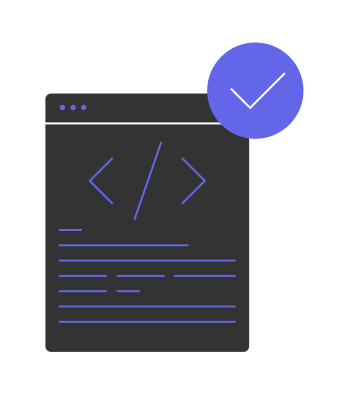Auto-generate the Maven metadata XML files that provide data about available versions of the artifact or a snapshot artifact

All packages uploaded will be auto wrapped with a two-step install for your users

Maven repository specifications, like snapshots, are supported out-of-the box
Push packages in seconds with Maven, Gradle+Maven Publish Plugin, SBT, or Leiningen

Packagecloud solutions are trusted by Fortune 500 companies around the world
Give your DevOps the agility to easily install, remove, or upgrade single or multiple packages using the command line interface (CLI)
We always use the latest features of package managers and ensure that your repositories are consistent, no matter how frequently they are updated
You can search packages by type, distribution, version, and architecture, or groups, with simple URL params
Download and install packages with confidence. All of your repository metadata is signed with a unique GPG key that is generated for every repository
Packagecloud plays well with widely-used orchestration tools such as Puppet, Chef, Bundler, Leiningen, Maven, SBT, Gradle, Pip. Comes with Bash scripts for common tasks and two-step installs.
Our site only works over HTTPS, so there is no chance of a misconfiguration accidentally exposing your repository or packages over plaintext HTTP
Stay future-ready! All our package repositories and API endpoints are accessible with IPv6

Your Packagecloud account comes with the option to add multiple collaborators to manage public and private repositories
Packagecloud plays well with widely used CI tools such as CircleCI, TravisCI, BuildKite, Github Actions, and Jenkins

Understand how users are consuming your packages, with detailed download and installation information from our Stats API. Statistics for specific packages or entire repositories are at your fingertips any time you want them

Installs and downloads at lightning speed via AWS Cloudfront content delivery network CDN
Packagecloud’s parent/child token system allows you to control access for groups of (or individual) hosts with flexible tokens. Share your private repositories with others, securely and easily
Simplify package promotion from staging to production using the packagecloud Promote API with our CI/CD integrations or the Web UI
We will help build a bespoke solution tailored to your requirements

You are billed the price for your plan at the start of the month. At the end of the month, your bandwidth and storage watermark calcuated. Any overage amounts will be added to the bill that you receive at the start of the next month.
Your current bandwidth usage and storage watermark is available in the usage section of account settings. You'll also find previous months' usage underneath, sorted by date.
Yes. We'll notify you when you've reached 50%, 90% and 99% of either your bandwidth, storage or maximum overage amount. You can turn these off in usage under account settings.
Uploads to packagecloud are free.
Bandwidth usage for downloads is updated every 5 minutes. We examine our request logs and attribute any bytes sent from packagecloud to the corresponding repository owner for the requested object. Conditional GET's, HEAD requests or cancelled requests aren't counted. You are only charged for any outgoing bytes.
Every time a package is pushed to, or yanked from packagecloud, we credit or debit a storage usages table for that user and repository, with the time that action took place. Then, we sum up all the bytes that were pushed and come up with a high watermark for any given billing period. Thus, if you upload 100GB of packages, and delete 90GB of them, you'll still have used 100GB for that billing period, and 10G for the next.
In the usage section of account settings, you can put the maximum overage amount you'd like to pay before the account gets disabled.
Note: Due to how bandwidth is calculated, there is a small window of about an hour between exceeding your maximum overage and us disabling the account. For high traffic repositories, you might need to budget accordingly. For example: if you send 10GB of bandwidth an hour, on a plan with 30cents/GB for overage and have set $1 as your maximum overage, you might end up paying $3. (30 cents/GB * 10GB).
Accounts are automatically re-enabled when: you have entered a new billing period, you have upgraded your plan, or you have increased the maximum overage allowed for your account.
Yes, we offer a limited Free Plan and also offer 14 day trials of any of our paid plans.
No, any applicable local taxes are added to your invoice as a separate line item. Currently, only billing addresses in the state of Texas or New York are taxed.
Sorry, paying by invoice is not supported at this time.
Absolutely. Please contact support@packagecloud.io and we'll get you going.
The following are the overage prices for the paid plans on packagecloud.io.
| $89/month | $150/month | $699/month |
|---|---|---|
| $2 per GB of Storage | 80¢ per GB of Storage | 80¢ per GB of Storage |
| $1.50 per GB of Bandwidth | 60¢ per GB of Bandwidth | 60¢ per GB of Bandwidth |
Overage rates for usage are calculated at the end of your billing cycle. This means that it's possible to get cheaper overages (or no overages at all) by upgrading to a larger plan before your billing cycle ends.
More questions? Contact us.